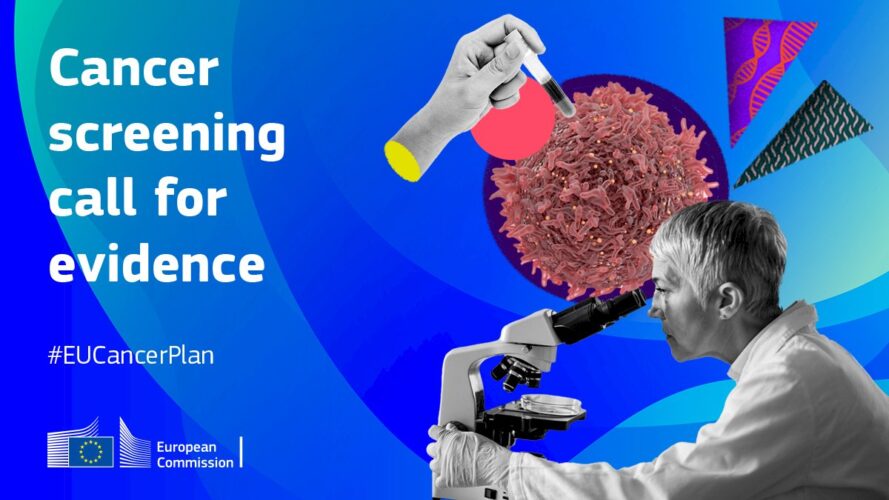
See All.Can submission on the European Commission website.
All.Can has submitted a response to the European Commission’s call for evidence to update the EU Cancer Screening Recommendation.
The new EU Cancer Screening Scheme is a flagship initiative of the Europe’s Beating Cancer Plan, and it will update the 2003 guidance (Council Recommendation) on cancer screening based on the latest scientific advice, and consider extending screening to other types of cancer.
The feedback expresses All.Can’s support to the Europe’s Beating Cancer Plan and the new EU Cancer Screening Scheme to reinforce Members States’ diligent screening of European citizens who would benefit from it. All.Can also welcomes the Commission’s ambition to extend screening to other types of cancers including lung, prostate and gastric cancers.
Screening programmes may be considered efficient if they help reach populations at highest risk of cancer, enable earlier diagnosis and improve outcomes – therefore, it is crucial to develop a robust evidence base to inform which population groups should be targeted, and refine the methodology and technology to deliver them.
As prompt and accurate diagnosis is pivotal to efficiency, All.Can recommends that decision-makers focus particularly on:
- Strengthening evidence-based screening programmes that play a vital role in the early detection of some cancers (especially cervical, breast and colorectal cancer), while noting that patients’ access to these measures varies and COVID-19 has disrupted many programmes.
- Extending the EU Cancer Screening Recommendation to lung cancer in light of the substantial impact of late and misdiagnosis and the evidence of benefit, as advocated by the European Respiratory Society, All.Can and other major cancer organisations.
- Investing in technologies and diagnostic capacities, including relevant primary care services, mobile units, tests, imaging, laboratories, and staff
- Investing in research exploring other innovative and promising approaches, including the use of artificial intelligence and machine learning to improve the early detection of cancers
- Improving cancer health literacy among the public through campaigns at the national level that involve healthcare professionals to communicate the benefits of screening to patients
Ultimately, decision-makers must also address socioeconomic factors that can contribute to late diagnosis (e.g. out-of-pocket costs). Making screening more accessible also means addressing inequities among countries and regions, ensuring, for example, equal access to prevention opportunities for women affected by cancer. There should be synergy among all European Commission initiatives addressing inequalities, and coordinated action across Member States is needed to prioritise access and allocate adequate funds to cancer screening in national cancer plans.
Download the full response here.